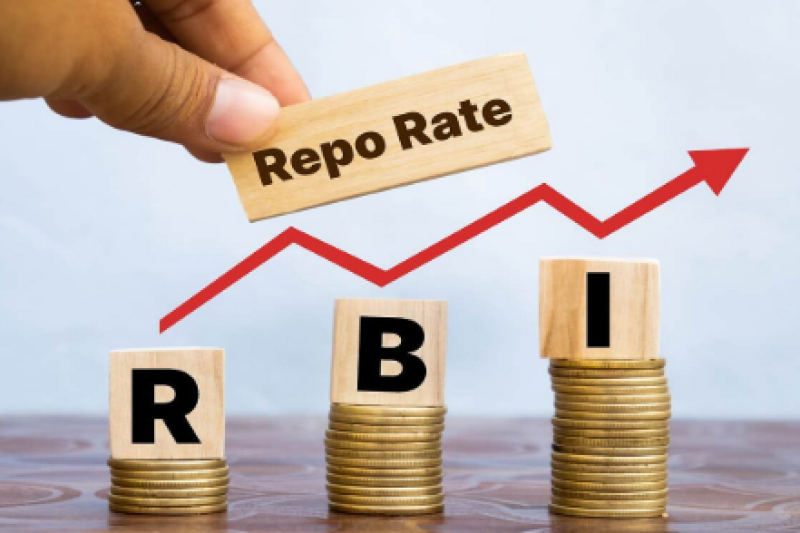"The RBI's move to cut the repo rate by 25 basis points and switch to an accommodative stance is at a suitably timed moment, with CPI inflation seen at 4.0% in FY 2025–26—comfortably within the centre of the tolerance band. It is a relief for the business community, as it cuts borrowing costs and promotes capital investments, especially in the recovering sectors. All-round correction in food price inflation and enhanced agricultural production support inflation stability, making it a supportive environment for consumption-led growth.
However, trade uncertainty in the global environment is still present, with tariff-related distortions and weakening of merchandise demand presenting challenges for exporters. While services exports are holding up, it would require a holistic approach of structural reforms to sustain this momentum.
The RBI's growth forecast of 6.5% is within reach if easing is supported at the monetary end by reforms at the structural level. We advocate for faster transmission of rate cuts through the banking system, targeted access of credit for MSMEs as well as exporters, and ease of compliance norms in favour of investment and trade. Besides, coordinated fiscal support and timely movement on spending on infrastructure will be important in achieving the multiplier effect for this monetary stance.
This data-driven policy response is appreciated by the industry, and it is expected that this should be sustained in terms of dialogue to overcome global uncertainty in successfully converting macroeconomic stability into broad-based growth."
Mr. Suketu Thanawala – Co-founder of StraCon Business Advisory.
By Pratik Kamdar – CEO and Co-Founder, Neuron Energy:
We stand at a pivotal moment today where India has the opportunity to become self-reliant and battery-efficient by scaling up local manufacturing capacity. Maharashtra, being a key EV hub, can attract investments from companies that are looking to reduce their import dependency on the U.S. The 26% tariff on auto components announced by the U.S. government poses significant challenges for Indian EV manufacturers, especially those who are sourcing critical components like battery cells from the U.S. The double duty charges on import and export will lead to increased production costs, impact affordability, and slow the adoption. However, the Indian government's support through the FAME scheme, the PLI program, and incentives for local battery production will be instrumental in mitigating the impact. To ensure long-term sustainability, we must diversify our sourcing strategies and tap into emerging markets across Europe, Southeast Asia, and the Middle East. This shift could ultimately strengthen India's auto ecosystem and position it as an attractive destination for global manufacturers aligned with the Make in India and Aatmanirbhar Bharat vision.
Anshul Jain, Chief Executive, India, SEA & APAC Tenant Representation, Cushman & Wakefield:
"Amidst ongoing global economic uncertainty, today's RBI policy announcement did manage to offer a healthy respite. A 25-bps cut in the interest rate, combined with a benign outlook on inflation, pegged to remain below 4% through FY26, reinforces the possibility of further rate reductions going forward. For the real estate sector, particularly the housing market participants, this is a positive development. The RBI's shift in stance from "neutral" to "accommodative" sends a strong signal of its intent to support growth. This will definitely encourage homebuyers' sentiment in mid-segment, often seen as the major category within the housing market demand. As far as commercial real estate is concerned, the small dip in growth projections from 6.7% to 6.5% for FY26 by the RBI warrants cautious optimism, however the broader policy direction remains growth supportive. Much will depend on how the global economic headwinds evolve, but today's announcement certainly sets the tone for a more stable and consumption friendly environment ahead."
Boman Irani, President, CREDAI National:
"We welcome the RBI’s decision to reduce the repo rate by 25 basis points to 6.00%. At a time of global economic volatility caused by increasing tariffs and geopolitical tensions , this move reflects a continued shift toward a pro-growth stance amid easing inflation and a stabilizing macroeconomic outlook. With CPI inflation expected to moderate to 4.5%, the rate cut is well-timed to uplift consumer sentiment and enhance borrowing capacity—especially in the housing sector. It is likely to improve home loan affordability, stimulate housing demand, and provide a strong impetus to the mid-income and affordable segments, where interest rate sensitivity remains high. The RBI’s continued policy easing highlights its commitment to sustaining growth while safeguarding macroeconomic stability."


